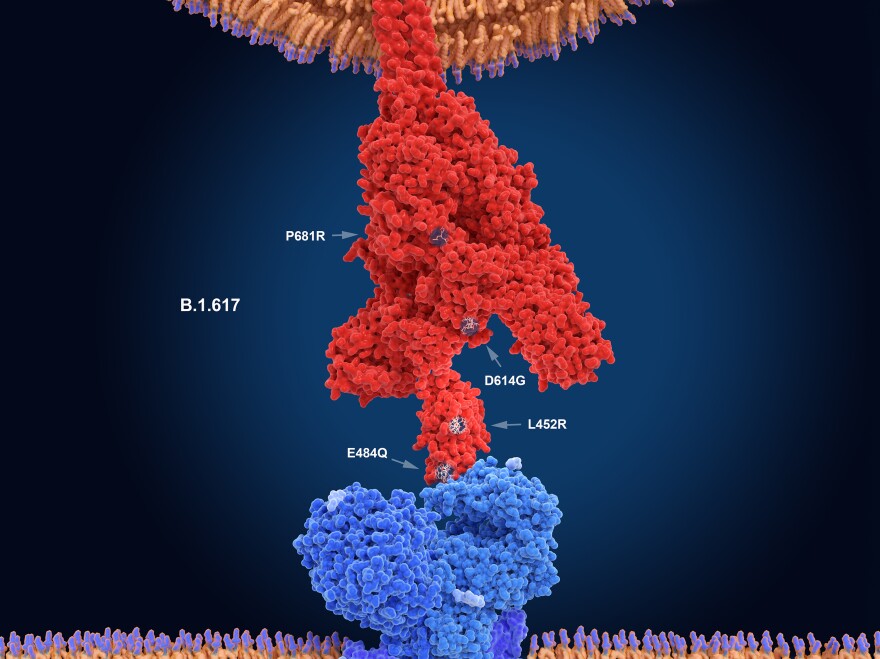Updated July 21, 2021 at 5:50 PM ET
After months of data collection, scientists agree: The delta variant is the most contagious version of the coronavirus worldwide. It spreads about two to three times faster than the original version of the virus, and it's currently dominating the outbreak in the United States, responsible for more than 80% of COVID cases.
A new study, published online this month, sheds light on why. It finds that the variant grows more rapidly inside people's respiratory tracts and to much higher levels, researchers at the Guangdong Provincial Center for Disease Control and Prevention reported.
On average, people infected with the delta variant had about 1,000 times more copies of the virus in their respiratory tracts than those infected with the original strain of the coronavirus, the study reported.
In addition, after someone catches the delta variant, the person likely becomes infectious sooner. On average, it took about four days for the delta variant to reach detectable levels inside a person, compared with six days for the original coronavirus variant.
In the study, scientists analyzed COVID-19 patients involved in the first outbreak of the delta variant in mainland China, which occurred between May 21 and June 18 in Guangzhou, the capital of Guangdong province. The researchers measured the levels of virus in 62 people involved in that outbreak and compared them with the levels in 63 patients infected in 2020 with an early version of the virus.
Their findings suggest that people who have contracted the delta variant are likely spreading the virus earlier in the course of their infection.
And the scientists underscore the importance of quarantining immediately for 14 days after coming into contact with someone diagnosed with COVID-19, as the U.S. Centers for Disease Control and Prevention recommends.
Or even better, getting fully vaccinated. Preliminary data shows that in some U.S. states, 99.5% of COVID-19 deaths in the past few months were among people who weren't vaccinated, said CDC director Dr. Rochelle Walensky at a White House press conference in early July.
And 97% of those currently hospitalized with COVID-19 are unvaccinated, according to Walensky.
"We know that the delta variant ... is currently surging in pockets of the country with low vaccination rates," Walensky said. "We also know that our authorized vaccines prevent severe disease, hospitalization and death from the delta variant."
Even though the variant is more transmissible, initial hospital data shows that it doesn't increase the risk of hospitalization compared to other strains, says Dr. Monica Gandhi, who studies infectious diseases at the University of California San Francisco.
Copyright 2021 NPR. To see more, visit https://www.npr.org.




